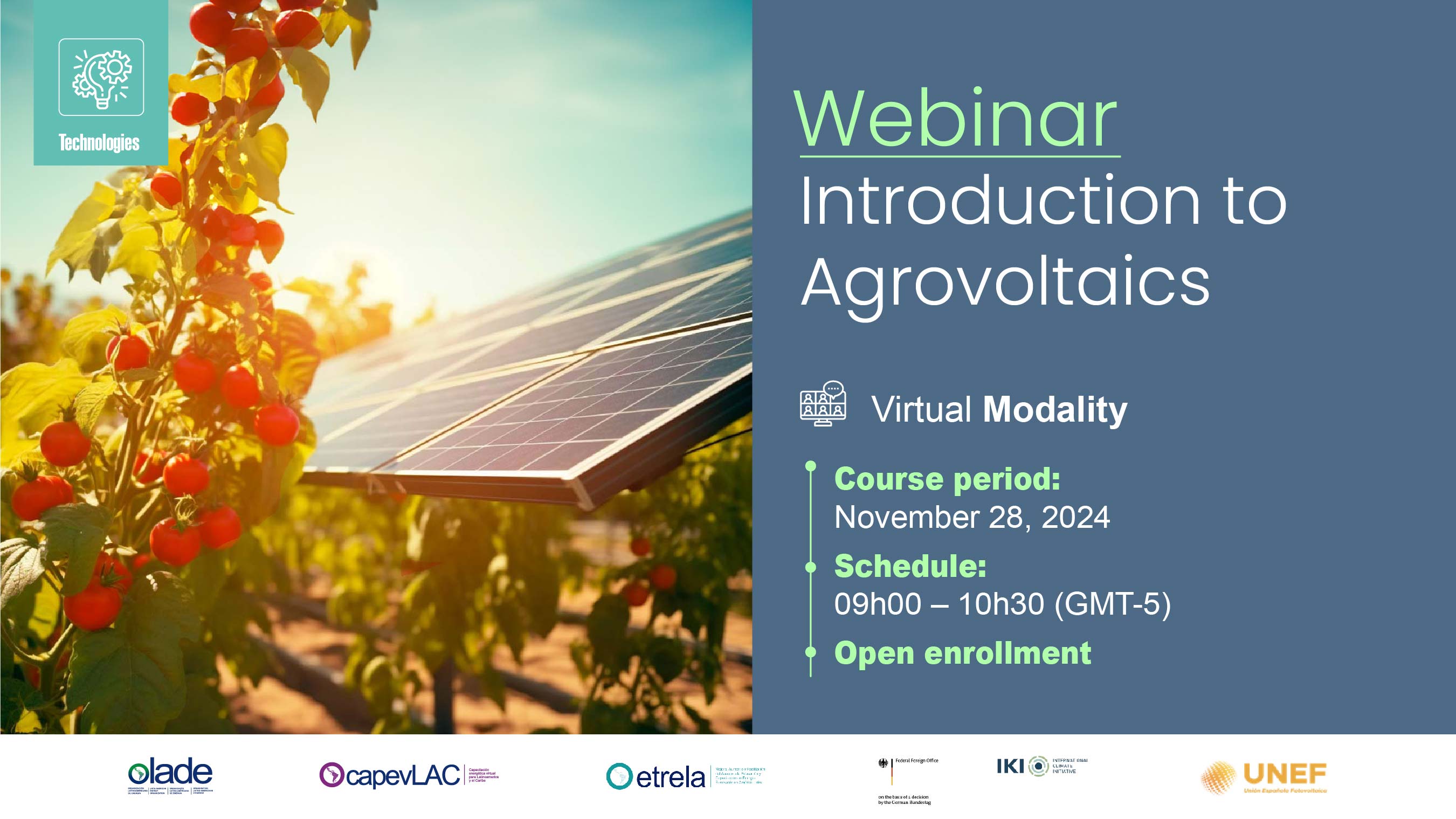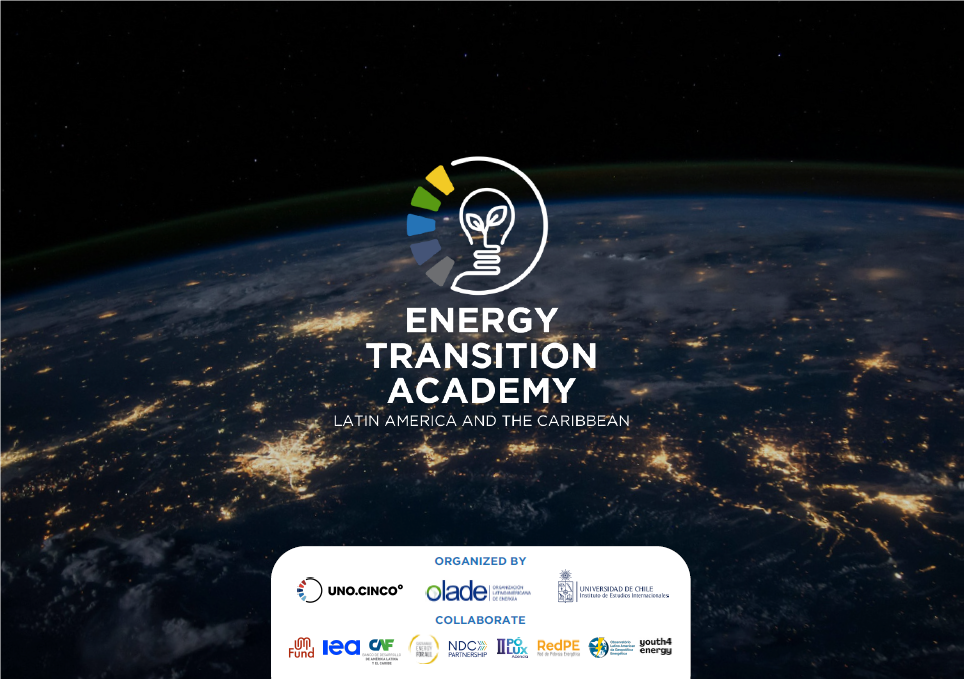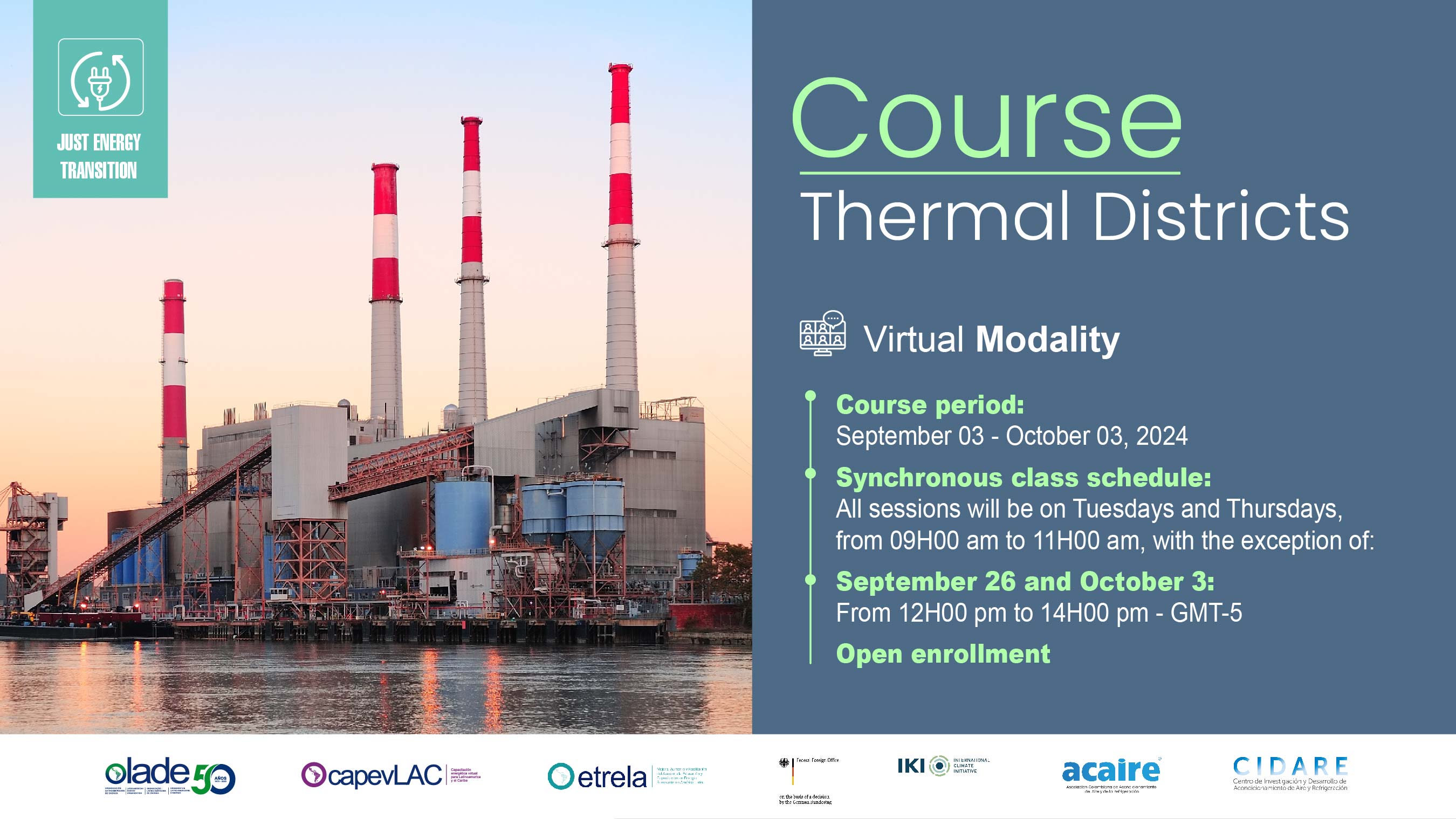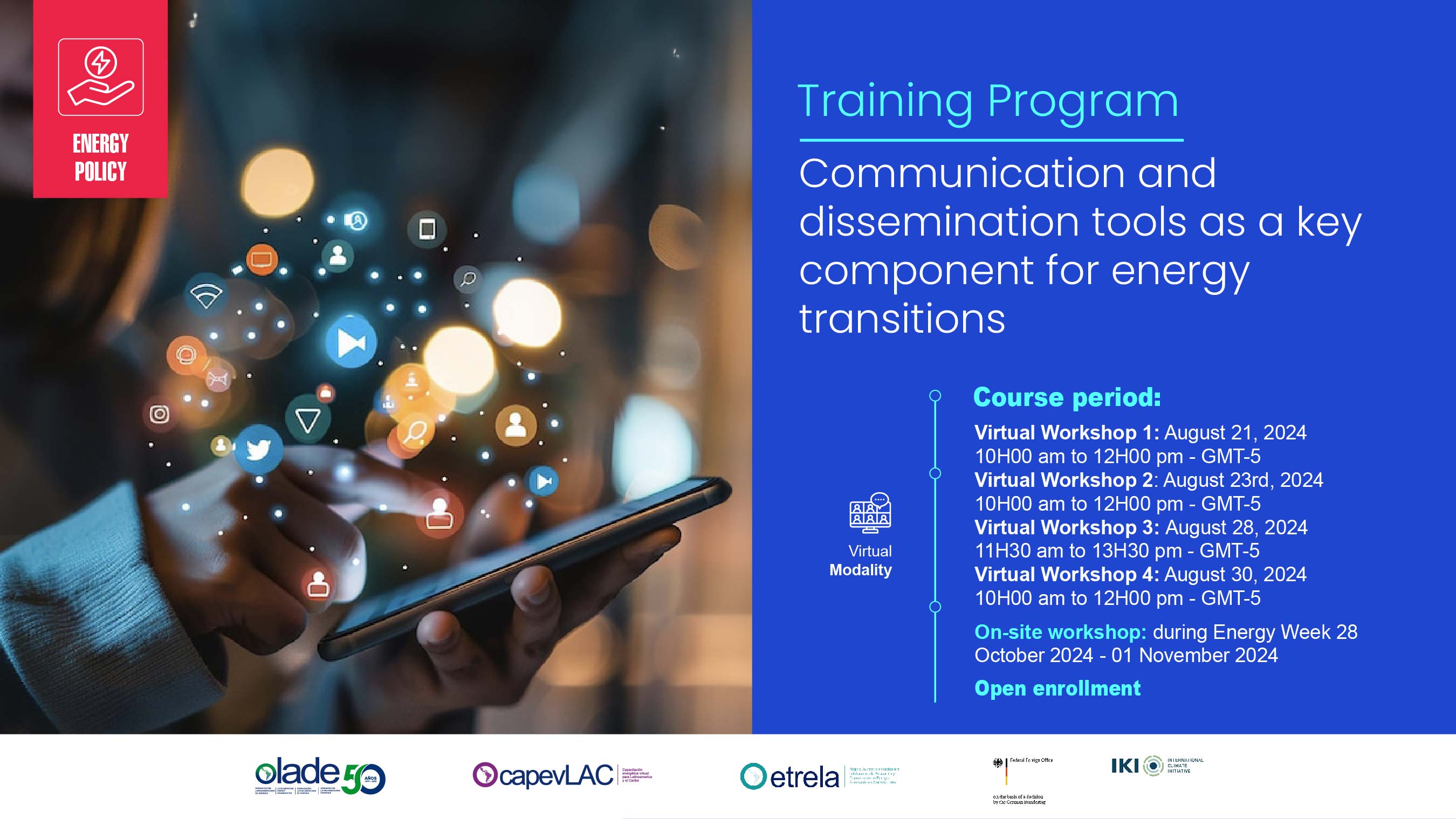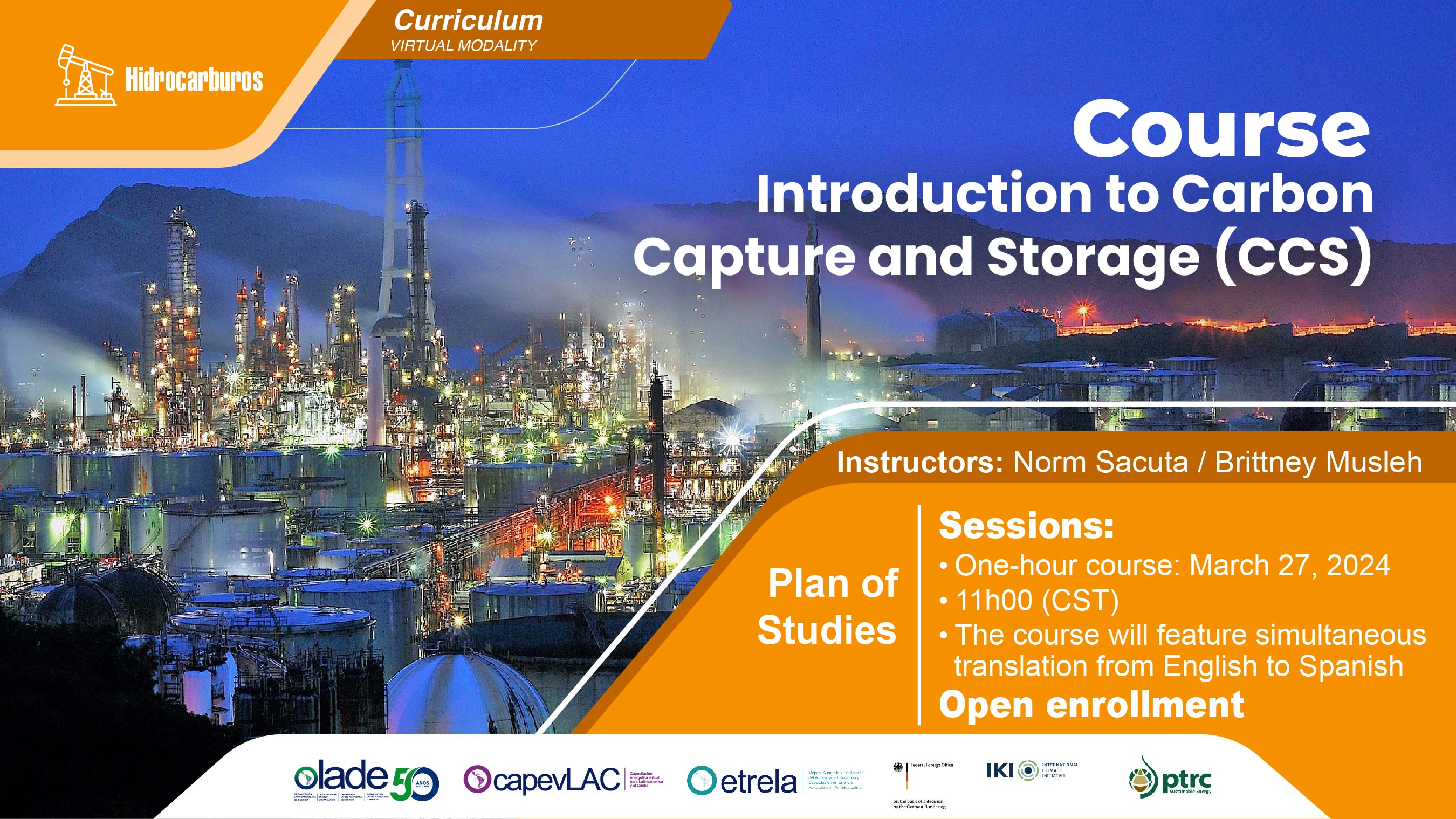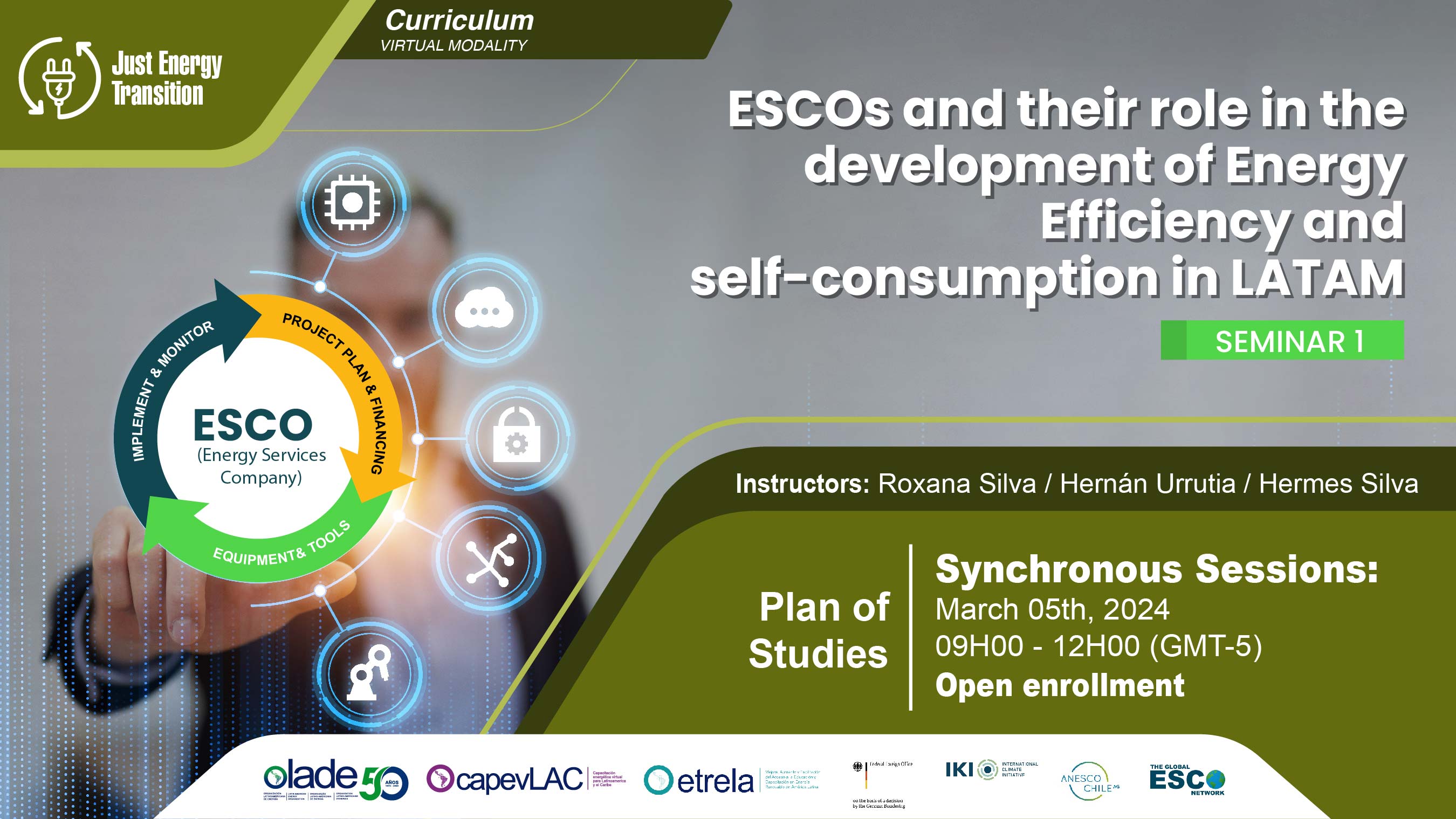- Introduction
Agrovoltaics is an innovative practice that integrates solar photovoltaic energy with agricultural uses in the same area, maximizing land use and creating new opportunities for renewable energy production. Traditionally, photovoltaic farms occupied large tracts of land dedicated exclusively to power generation, with little or no interaction with other activities. However, agrovoltaics rethinks this idea, allowing dual production that combines electricity generation with other activities in the same space.
In this webinar, we will start with an introduction to the basics of solar photovoltaics, where we will explore the principles of operation of solar panels, their components and the different types of technologies available. We will analyze the evolution of the competitiveness of photovoltaics, which has proven to be the most cost-efficient energy source in the last decade.
We will then examine the state of the art of solar photovoltaics, both internationally and in the European Union, with a special focus on growth trends and forecasts for the future.
In the part dedicated to agrovoltaics, we will define this concept and explore the different types of agrovoltaic systems that exist, highlighting their environmental, economic and social benefits. We will see how agrovoltaics can optimize land use, reduce water evaporation and generate additional income for landowners, while helping to mitigate climate change. We will also discuss its current status in Spain, analyzing the regulatory and technical challenges facing the sector, as well as the solutions proposed to overcome them.
Finally, we will present examples of outstanding agrovoltaic projects, success stories and lessons learned from recent implementations.
Our goal in this webinar is to provide a clear and understandable vision of solar PV and its integration through agrovoltaics, showing its potential to contribute to a more sustainable and diversified energy matrix. At the end, a Q&A will be opened to address any questions and encourage an interactive discussion.
- Presentation of the Webinar structure
- Opening statements
- Andrés Rebolledo, Executive Secretary, OLADE
- Martín Behar, Director of Studies and Environment, UNEF
- Basic Concepts of Photovoltaic Solar Energy
- Principles of operation.
- Components of a photovoltaic system.
- Types of photovoltaic technologies.
- Competitiveness
- State of the art of Photovoltaic Solar Energy.
- International and EU
- Future forecasts
- Agrovoltaics: Solar Energy and Agriculture Integration
- Definition and concept of agrovoltaics.
- Environmental, economic and social benefits of agrovoltaics.
- Types of Agrovoltaics
- Potential development
- State of the art in Spain
- Barriers to development and responses
- State of the art of photovoltaics in France
- Practical examples of agrovoltaic projects in the EU
- Questions and answers
- Closing statements
- General objective of the curriculum
The objective of this course is to provide participants with a comprehensive understanding of the fundamental principles and best practices of agrovoltaics, as well as its transformative potential to optimize land use and foster sustainability in the energy sector. Throughout the course, we will explore how this innovative technology can contribute to the transition towards a more diversified and resilient energy matrix, simultaneously maximizing renewable energy production and generating economic and environmental benefits for rural communities.
- Curriculum Learning Objectives
At the end of this course, participants will be able to:
- Understand the fundamental concepts of solar photovoltaic energy, including its operation, components and types of technologies used.
- Analyze the current state of photovoltaic energy internationally and in the European Union, identifying growth trends and future forecasts.
- Define and explain the concept of agrovoltaics, and describe the different types of agrovoltaic systems available on the market.
- Evaluate the environmental, economic and social benefits of agrovoltaic projects, highlighting their potential for land use optimization and mitigation of environmental impacts.
- Identify barriers and challenges in the development of agrovoltaic projects, as well as propose practical solutions for their successful implementation.
- Apply real-world examples of agrovoltaic projects to illustrate best practices and draw lessons learned from successful cases.
- Demonstrate skills to plan and manage agrovoltaic projects, integrating knowledge on design, operation and efficient maintenance.
- Participant Profile
This course is aimed at students, professionals and entrepreneurs interested in learning about agrovoltaics and its potential for renewable energy and food production in a sustainable manner.
- RegistrationParticipants must access the webinar through the following link: https://olade-org.zoom.us/j/89593343748?pwd=G9ary7MR8nUcjw1Nl5zqKhPtb9XMOH.1https://capevlac.olade.org/tecnologias/courses/webinar_introduccion_agrovoltaica/
This curriculum is open access and free of charge for OLADE Member Countries as it is implemented in the framework of the ETRELA project “Improving, increasing and facilitating access to education and training in renewable energy in Latin America” funded by the International Climate Initiative (IKI) of the German Government and in cooperation with Martin Behar Kölln, Director of Studies and Environment (UNEF) and Elise Garesse, responsible for Agrovoltaics in France (Akuo energy). - Speakers
- Martín Behar Kölln has an outstanding academic and professional career, specializing in renewable energies and public policy. He holds a degree in Political Science and Administration from the Complutense University of Madrid, and a BA with Honors in International Relations and Political Science from the University of Kent (UK). He has also completed a Master’s Degree in Energy Law at the Spanish Energy Club and has undertaken additional studies at institutions such as the Université Paris-Sorbonne and the Universitat Pompeu Fabra.
He currently serves as Director of Studies, Regulation and Environment at the Spanish Photovoltaic Union (UNEF), leading key research and regulatory analysis for the solar sector. Previously, he accumulated more than seven years of experience as an advisor in the Spanish Congress of Deputies, focused on energy policies, and worked in several international organizations, managing sustainable development projects and strategies for energy transition.
- Elise Garesse is a leading professional in the field of agrovoltaics, with a strong background in agricultural engineering and a specialization in renewable energies. She currently serves as Agrovoltaic Project Manager in Northern France, leading initiatives that integrate agricultural production with solar energy generation. Her experience ranges from project planning and implementation to working with local communities to promote sustainable practices. Elise has participated in several conferences and seminars, sharing her knowledge on the advantages and challenges of agrovoltaics in the European context. Her approach combines technological innovation with a deep respect for the environment and traditional agriculture.
Course Features
- Lecture 0
- Quiz 0
- Duration 10 weeks
- Skill level All levels
- Language English
- Students 2
- Certificate No
- Assessments Yes

